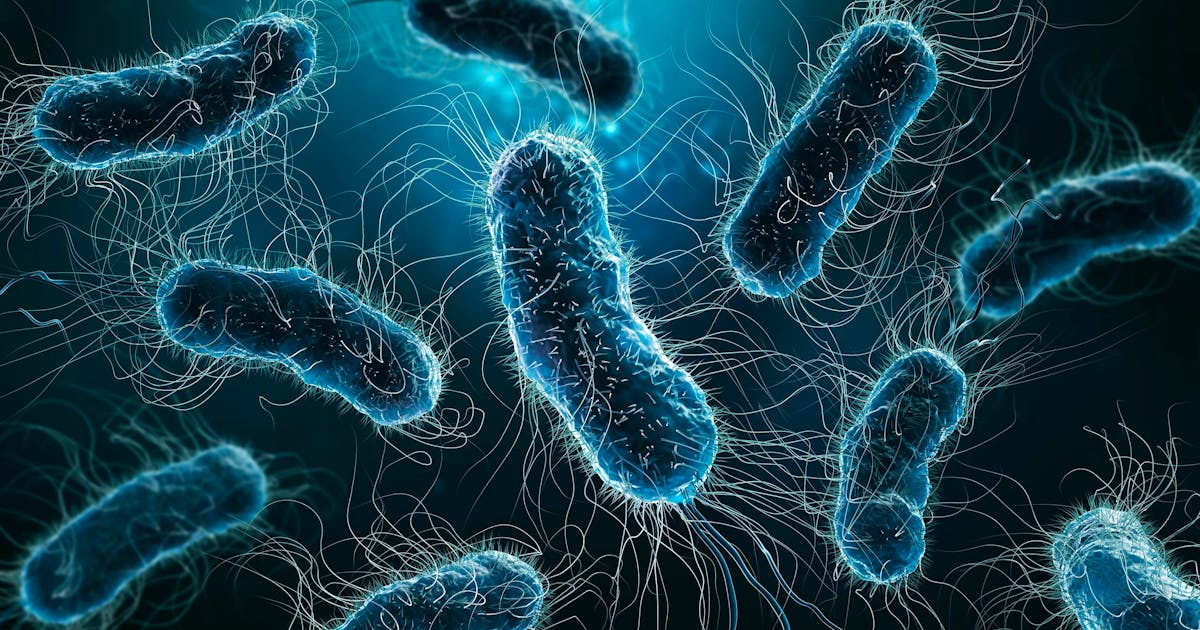(ETX Daily Up) – Around ten children were contaminated by the bacteria Escherichia coli (E. coli) at the end of 2023 after consuming raw milk cheese, two of whom are still hospitalized in serious condition. If the incriminated food was the subject of a recall procedure in December, the health authorities call on parents to be extremely vigilant regarding the consumption of certain products, and remind them of the reflexes to adopt to reduce the risk of transmission of the bacteria.
Washing your hands, cooking meat thoroughly, and not giving children foods made with raw milk are essential actions to limit the risk of contamination by E. coli.
Getty Images
Hemolytic and uremic syndrome (HUS), from which contaminated children suffer, is linked to certain strains of E. coli “present in the intestines of ruminants”, and “mainly affects young children”, as recalled Public Health France, which reports a “rare but serious complication”. Note that the number of cases of hemolytic and uremic syndrome was particularly high in 2022 due in particular to a “very large-scale epidemic linked to the consumption of frozen pizzas”. Stating that the transmission of the bacteria occurs mainly through the consumption of contaminated foods, particularly when they are ingested raw or undercooked, Santé Publique France recommends simple but essential actions to adopt to limit the risks.
On the importance of hygiene
Before preparing each meal, it is essential to systematically wash your hands, just like before eating, whether for children or adults. But it is also important to “thoroughly wash” foods, such as vegetables, salad, fruits and herbs, intended to be eaten raw. On the issue of hygiene, health authorities also recommend thoroughly cleaning all kitchen utensils essential for preparing the meal, “especially when they have previously been in contact with raw foods such as meat or cheeses”, just like the work surface. A reflex which allows, again according to Public Health France, to “avoid a risk of cross contamination”.
Be careful when cooking!
To avoid being contaminated by E. coli bacteria, it is essential to cook all flour-based preparations thoroughly, whether cakes, pies, pancakes, or even pizzas. These “should not be consumed raw or lightly cooked”, specifies Santé Publique France. The same goes for meats, and in particular for minced beef and minced meat preparations: they must be “cooked through to reach 70°C”. In other words, they should not be eaten pink or rare.
Another important detail, all cooked meals and leftovers must be kept in the refrigerator, and must be put away there as quickly as possible, before being reheated properly for a future meal. Necessary precautions if we consider that the bacteria in question “stand up well to cold [mais] are destroyed by cooking.
The case of young children
Regardless of the aforementioned recommendation, it is all the more valid – and important – when the meal is prepared for a child under 5 years old. It is even strongly recommended to avoid certain foods for this very young audience, namely raw milk, cheeses made from raw milk, and dairy products made from raw milk. Santé Publique France advises turning to cooked pressed cheeses, processed spreadable cheeses and pasteurized milk cheeses to reduce the risk of contamination in the youngest children.
Certain symptoms can alert parents in the event of contamination by the bacteria: abdominal pain and diarrhea which can develop into hemorrhagic colitis, accompanied or not by vomiting and fever.
Relax
